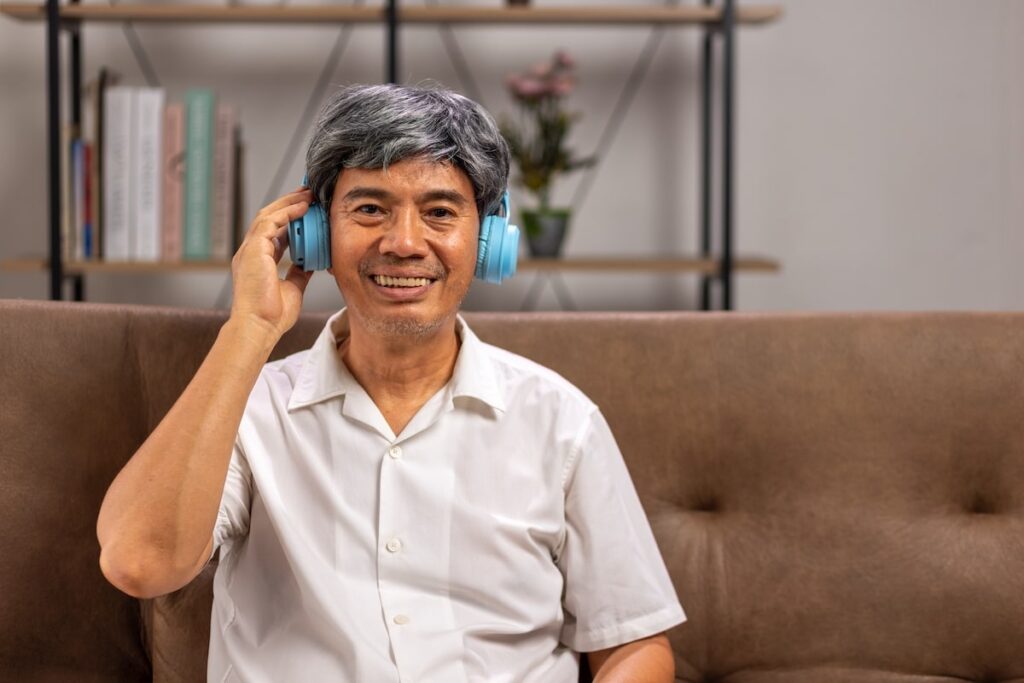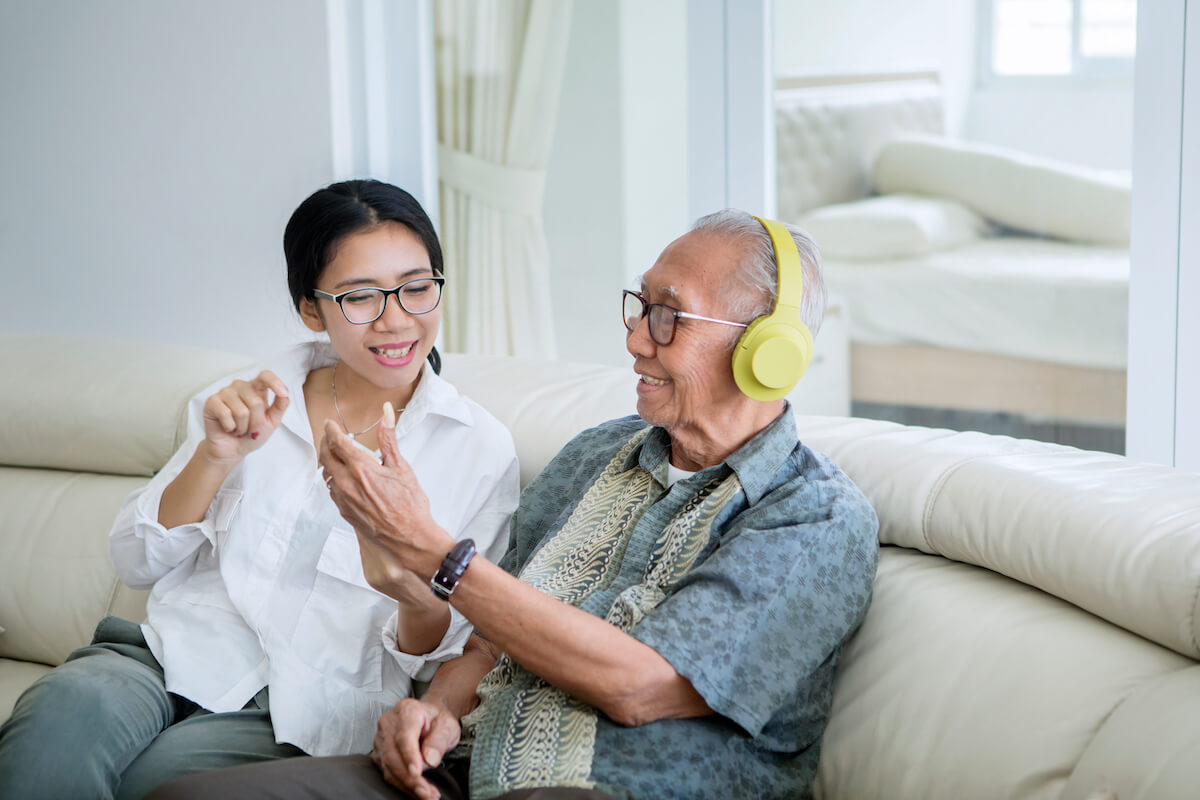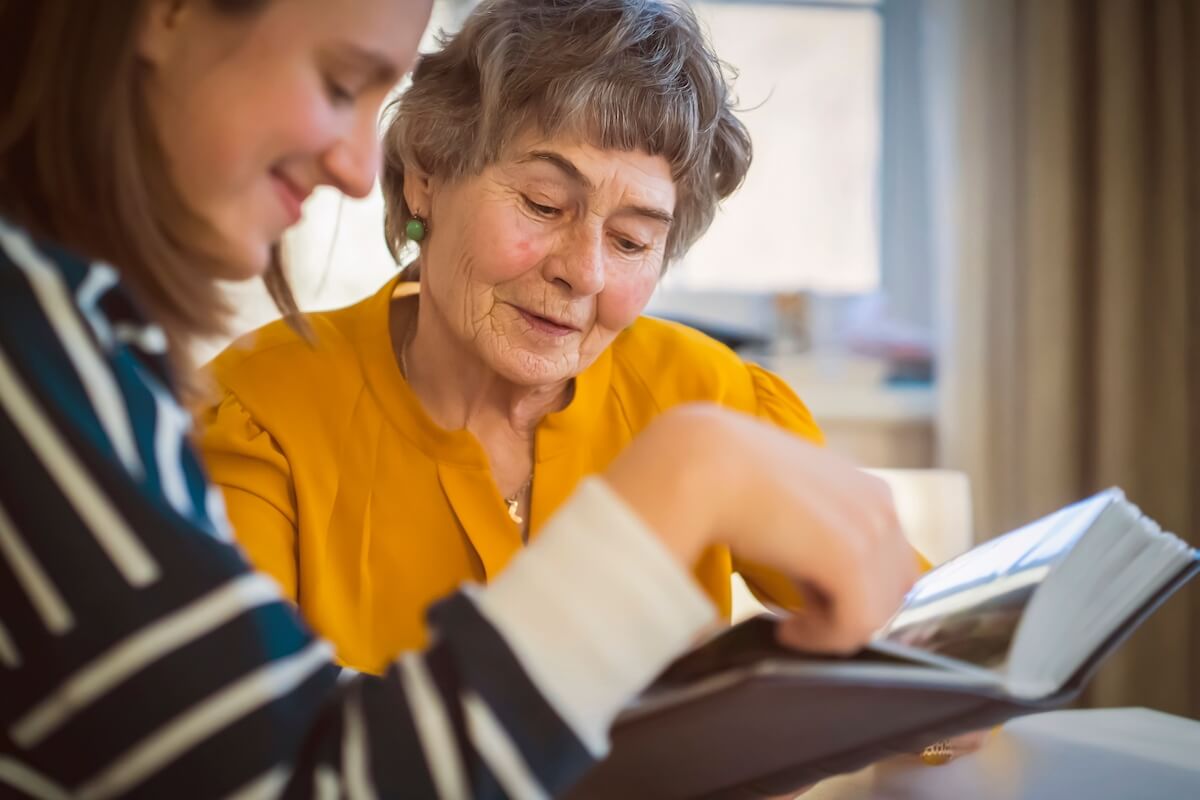The Connection Between Music and Dementia
A dementia diagnosis brings many challenges, reshaping the lives of older adults and their families. Dementia affects a person’s memory, ability to communicate, and sense of connection to family, friends, and cherished moments. However, within these challenges lies an extraordinary opportunity to tap into a deeply personal and powerful tool: music.
More than mere melodies, music can awaken memories, create joyful connections, and soothe agitation. Our team at The Monarch Senior Living explores these remarkable effects and shares how our memory care programs can bring the restorative power of music into residents’ daily lives.
The Innate Connection Between Music and the Mind

Music has an unparalleled ability to forge profound connections within the human brain. Scientific research continually reveals how music activates regions associated with memory, emotion, and attention, often remaining accessible even when other cognitive functions diminish. It assists in the management of agitated behaviors and has shown modest cognitive benefits.
The innate connection between music and the mind makes it an especially powerful tool for individuals living with dementia. Whether through rhythm, melody, or lyrics, music often becomes a bridge to emotions and experiences once thought lost.
7 Remarkable Benefits of Music for Individuals with Dementia
Enhancing Mood and Emotional Well-Being
Music has an extraordinary way of uplifting spirits. A familiar song can infuse joy and tranquility into moments otherwise filled with uncertainty. Whether it’s a classic lullaby or a childhood favorite, these melodies can soothe anxieties and evoke peacefulness. For example, many families have seen their relatives beam with an unexpected smile during a rendition of an old tune, an emotional connection sparking life into their day.
Encouraging Movement and Physical Activity
With its inherent rhythms, music inspires physical expression. Even something as simple as tapping a foot, clapping, or swaying to the beat fosters movement. Rhythmic melodies can encourage older adults to participate in exercises or gentle dances, promoting better mobility, circulation, and overall physical wellness.
Unlocking Memories and Emotional Connections
Few things evoke cherished memories like music. Hearing a wedding song, a hymn, or a lullaby sung to one’s children can instantly transport someone to a vivid moment in time. These moments foster emotional connections and instill a sense of continuity, reminding those with dementia of their life’s story and treasured experiences.
Promoting Socialization and Engagement
Music is a communal language, inviting individuals to share moments of joy and connection. Group sing-alongs or instrumental ventures often encourage a sense of community. For someone living with dementia, the act of singing with others can spark laughter, shared memories, and meaningful interaction, tying bonds in a way words alone cannot achieve.
Reducing Agitation and Restlessness
The disorientation accompanying dementia can bring about feelings of agitation. Calm, melodic tunes have been shown to diminish restlessness and create a serene space conducive to relaxation. A soothing piece of classical music or a soft instrumental track can help alleviate distress, offering both comfort and balance.
Improving Sleep Patterns
Challenges with disrupted sleep are common for those living with dementia. Incorporating relaxing music, especially in the evening, fosters a setting of tranquility that supports better sleep. A gentle lullaby or nature-inspired soundscapes before bedtime may help guide individuals into restorative rest.
Providing Cognitive Stimulation
Music engages the brain in ways that stimulate curiosity and mental activity. Learning new songs, recalling lyrics, or playing basic rhythm-based instruments can offer mental exercises that keep individuals cognitively active. These enriching experiences help sustain key cognitive functions while fostering joy.
Music in Action: The Monarch’s Memory Care Programs
At The Monarch Senior Living, we recognize that memory care involves more than meeting medical and physical needs—it requires creating an experience of connection and comfort. That’s where music comes in as one of the many thoughtful practices we incorporate to uplift and inspire residents.
Our Valeo™ signature programs are specifically designed to bring joy and fulfillment to individuals living with memory impairments, including Alzheimer’s disease and other types of dementia. Each program is carefully tailored to highlight every individual’s unique strengths, offering meaningful opportunities to engage, explore, and pursue personal interests.
One of these programs, Create & Compose, offers residents the opportunity to engage in hobbies like playing music or painting. These hobbies inspire self-expression while promoting mental well-being. Beyond their therapeutic effects, art and music provide an avenue for relaxation, comfort, and stress relief.
The Melody of Compassionate Care

The harmony between music and dementia care creates opportunities for connection, joy, and healing that transcend other forms of engagement. At The Monarch Senior Living, music is at the heart of our memory care programs, and we celebrate its ability to inspire moments of clarity and delight.
If you are seeking ways to enrich the life of a family member living with dementia, consider starting with the gift of music. Contact us at The Monarch Senior Living to explore all the ways good melodies can improve a parent’s lifestyle.



























